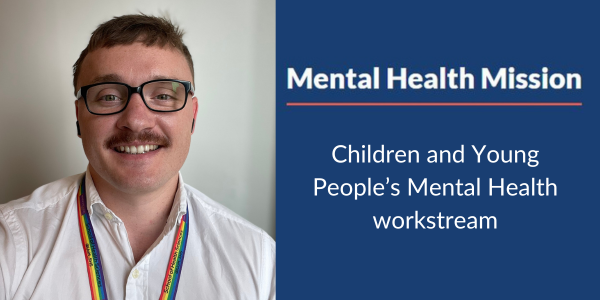
Dr Dominic O’Connor, Research Associate at the University of Manchester, is working with the Mental Health Mission’s Children and Young People’s Mental Health workstream to improve the experiences of vulnerable adopted children and their parents who take part in research around the relationships between childhood trauma, neurodevelopment disorders, mental health, immune function and cognitive processes.
Dr O’Connor speaks about the importance of embedding meaningful PPIE in research through his experience of working with the Parents Of Traumatised Adopted Teens Organisation (POTATO).
PPIE ensures that the voices of those directly affected by research outcomes are heard and integrated throughout the study process.
Recently the POTATO Group held a conference where parents were invited to share their experiences of raising adopted teenagers who have endured significant trauma. Dr O’Connor discusses the outcome of this conference with us:
Insights from the POTATO Group Conference
We were invited to attend a deeply insightful conference organised by the POTATO Group. This conference served as a critical platform for these parents who are experts by experience to share their insights and challenges with professionals in research, support services, and policymaking.
Amplifying parental voices
One of the most striking take-home points from the conference was the clear message that, while these parents have a wealth of knowledge and experience to share, they often struggle to get their voices heard by professionals. There is a gap between the lived experiences of these families and the theoretical frameworks or clinical approaches often employed by researchers and practitioners. This disconnect can result in policies and practices that fail to address the real needs of traumatised adopted teens and their families.
Reflections on our research
During the conference, we had the opportunity to discuss our ongoing research with members of the POTATO Group which allowed us to gather feedback directly from those who are most impacted by the issues our research seeks to address.
One of the key discussions centred around our study protocol. We organised a focus group with parents to present the proposed study protocol in detail where parents could freely share their thoughts, concerns, and suggestions. The feedback we received highlighted areas where our protocol could be improved to better meet the needs of individuals with social and emotional mental health challenges.
The introduction of a modular protocol
The parents in the focus group emphasised the need for flexibility and adaptability in any research or intervention aimed at supporting traumatised adopted teens. They pointed out that a one-size-fits-all approach is often ineffective, as each teenager’s experience of trauma is unique, and their needs can vary widely.
In response to this feedback, we have restructured our study protocol to incorporate a modular approach to increase the accessibility and effectiveness of our study for individuals with social and emotional mental health needs. This allows for greater customisation of interventions based on the specific needs and circumstances of each participant.
Listening to the voices of teens
We also presented both the study protocol and recruitment materials to the adopted teenagers, inviting them to share their thoughts and suggestions.
The young people provided us with a unique perspective on the language and methods used in our materials, highlighting areas where we could make improvements to better resonate with them. For example, they pointed out that some of the terminology we used was too clinical or abstract, which could be off-putting or confusing for potential participants. They also suggested more relatable and engaging ways to present the study’s purpose and benefits, ensuring that the materials would capture their interest and encourage participation.
Moving forward with collaboration and compassion
Attending the POTATO Group conference was a powerful reminder of the importance of listening to and collaborating with those who are most affected by the issues we seek to address in our research. The experiences shared by the parents and teens have profoundly shaped our approach, leading to meaningful adaptations in our study protocol that we believe will enhance its impact.
As we move forward, we remain committed to maintaining an open dialogue with the POTATO Group and other stakeholders. By continuing to involve parents, teens, and other experts by experience in the research process, we can ensure that our work is not only scientifically robust but also grounded in the realities of those it is designed to help. These PPIE efforts have reinforced the value of empathy, collaboration, and inclusivity in research, and we are grateful for the opportunity to learn from and work alongside such a dedicated and knowledgeable group of individuals.

